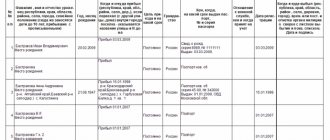Who are the guardians?
First, let's look at the difference between the statuses of “adoptive parent”, “guardian” and “trustee”. These are by no means identical concepts.
Adoptive parents raise the child on their own, without state support, and have almost no benefits, since the adopted child is legally considered their own. Another thing is guardians and trustees.
The state has developed and approved the institution of guardianship and trusteeship, which provides citizens with the opportunity to raise and support a child without giving him the status of an adopted child.
Guardians and trustees are given the amount of money established by law for the maintenance of the child, which is necessary to buy clothes, toys and other things the child needs.
The difference between guardians and trustees is small, but still there. Guardians are people who have taken on the responsibility of caring for a child under 14 years of age.
Trustees are citizens who have expressed a desire to provide acceptable living conditions for capable children from 14 to 18 years of age.
So, a guardian is a citizen raising a child under 14 years of age who is left without parental care . What benefits does a guardian have?
Inspections by guardianship authorities
The guardianship authorities will regularly check the baby’s life support and living conditions.
The state of health and the performance of actions that guardians must perform in relation to the ward will also be checked.
In the absence of compliance with the conditions or their violation, guardianship reserves the right to deprive a person of the status of a guardian and send his ward to an orphanage.
It is very important to help a child under guardianship establish contacts with others and remaining relatives. It is recommended to talk with your clients every day, learn about their problems and difficulties, and offer your help.
Are there any benefits for guardians?
Guardianship and trusteeship are forms of protecting the interests of citizens who are unable to take care of themselves.
This category includes:
- minors;
- incompetent;
- disabled people.
Both institutions are connected and regulated by the same regulatory framework, and as a result, an identical set of benefits. Guardians provide assistance to the ward free of charge.
The law provides for cases when funds are allocated for such support. Persons applying for social benefits devote a lot of time to fulfilling guardianship obligations. As a rule, there is no time to work and earn money. If a person strives for a higher income, it is not worth applying for such a status.
Adoptive parents often try to receive benefits and compensation on the same basis as guardians. But it's not the same thing. State support is not provided for citizens who have taken full responsibility for a minor child. They receive benefits established by Russian legislation for parents. Another distinctive feature: guardianship is temporary, and the rights of the adoptive parents are unlimited.
Who can become a trustee
In order to receive the required benefits for guardians of incapacitated disabled people, it is necessary to meet certain requirements:
- be able to work, that is, be able to take care of the patient;
- have no criminal record;
- do not suffer from mental disorders;
- age from 16 to 60 years.
Important! When choosing a guardian, preference is given to close relatives.
The money paid by the state is compensation for the fact that the guardian cannot allocate enough time to earn money. But if there is other income in it, then you should not pin your hopes on payments.
To register you should follow these steps:
- collect the necessary package of documents;
- transfer of collected documentation to the guardianship authorities and the Pension Fund.
Guardianship over an incompetent person is allowed to be issued to medical institutions where the patient is registered.
What documents are needed to receive benefits?
The list of documents for receiving benefits and where to submit them depends on what kind of benefit: a shortened work week or a tax deduction is issued at work, a personal income tax return is issued directly to the Federal Tax Service, benefits for housing and communal services are issued in social security, etc.
Everywhere you need:
- guardian's passport;
- birth certificate (passport) of the ward;
- decision to establish guardianship or trusteeship;
- a document confirming the joint residence of the guardian and the child;
- documents about the child’s disability (if any).
To process payments you need:
- guardian's statement;
- bank account details.
In some cases, additional papers will be needed - a certificate of full-time study at the university, etc.
Remember: the guardianship authority submits information about established guardianship or trusteeship to social security, the Pension Fund, etc. But do not expect that benefits will accrue on their own; you cannot do without visiting offices. Some of them (different in different regions) are issued through the MFC.
What is the difference between guardianship and trusteeship and adoption?
Guardianship is a temporary agreement and expires after a certain period. For example, adoption implies responsibility for it for life. While guardianship is issued from the age of 14, if the minor is left without parents, they are in prison or deprived of parental rights.
Adults are allowed to represent the interests of the ward in government bodies, but are not granted rights to his property.
Guardianship can be established over adult incapacitated citizens, students of universities and colleges.
How to apply for a one-time benefit when placing a child in a family?
A one-time allowance when placing a child in foster care is assigned and paid to one of the adoptive parents, guardians (trustees), foster parents, provided that he/she filed an application with the social security authorities within 6 months from the date the court decision on adoption entered into legal force ( making a decision by the guardianship and trusteeship authority to establish guardianship (trusteeship).
To apply for the benefit you will need:
- application for benefits;
- passport(s) of the adoptive parent(s) (guardian(s), trustee(s), adoptive parent(s);
- child's birth certificate;
- documents confirming the family relationships of children (for persons who have adopted brothers and (or) sisters)*;
- documents confirming that the adopted child has a disability (if adopting a disabled child)*;
- a document confirming the transfer of a child to a family;
- a document indicating the name and details of the credit institution and the account number to which the benefit will be transferred;
- copies of documents confirming the absence of parents (single parent) or the impossibility of raising children - for guardians (trustees) and adoptive parents.
An application and documents for processing the payment must be submitted to the social welfare department at the place of residence of the adoptive parent, guardian or trustee. The benefit is assigned and paid no later than 10 days from the date of receipt of the application with all the necessary documents.
*Adoptive parents may not submit these documents if information about the disability of the child (children) or the relationship between the adopted children is contained in the court decision on adoption.
Intangible rights
The non-material rights of orphans include receiving:
- medical care;
- higher or secondary specialized education;
- right to employment;
- the right to visit sanatoriums.
If orphans are registered with the employment authorities, they have the right to receive unemployment benefits for the first six months. Its size is determined for each region individually. Also, the employer who employs an orphan, when reducing his position, must provide the opportunity to study in a new specialty with subsequent employment.
Orphans can receive a voucher for sanatorium treatment for medical reasons at the expense of the local budget no more than once a year.
To do this, you must submit an application to the local social security authorities.
Right to medical care
Citizens are guaranteed to receive a number of services in public medical institutions:
- annual physical examination;
- provision of medicines (by decision of the region);
- treatment abroad;
- visiting health facilities no more than once a year.
The listed benefits are valid up to 23 years of age.
Right to education
Citizens have the right to prepare for admission to secondary specialized and higher educational institutions free of charge.
Orphans are enrolled in such institutions without competition and free of charge, subject to successful passing of all entrance exams. Along with other students, they can be expelled from the educational institution for violation of discipline or poor academic performance.
For the entire period of study, orphans are paid a special increased scholarship and annual allowances for the purchase of necessary educational materials. Grades do not affect the amount of the scholarship.
The scholarship does not cease to be paid even if the student is on academic leave for health reasons. The educational institution must take an active part in organizing medical care for such a student.
The state also guarantees free travel once a year from the place of study to the place of residence and back.
If the training involves practical training, then it is paid at 100% of the salary established in the organization.
How to apply for compensation for expenses related to adoption?
Compensation for reimbursement of expenses in connection with the adoption of an orphan or a child left without parental care is assigned to one of the adoptive parents upon application within 12 months from the date of adoption of the child.
To process the payment you will need:
- statement;
- passport, residence permit or other document identifying the applicant, confirming place of residence and citizenship;
- child's birth certificate;
- a court decision on adoption that has entered into legal force;
- adoption certificate;
- a certificate from the guardianship and trusteeship authorities stating that the child, before adoption, was one of the orphans and children left without parental care;
- a document indicating the name and details of the credit institution and the account number to which the benefit will be transferred.
The payment is due to Russian citizens, foreign citizens and stateless persons who have permanent registration in Russia, but who adopted a child in Moscow.
Adoptive parents living in Moscow must submit an application and documents for payment processing to the social welfare department at their place of residence. For adoptive parents who have a place of residence outside of Moscow, contact the social welfare department at the place of adoption of the child.
The application must be considered no later than 10 days from the date of its receipt with all necessary documents.
How to arrange a monthly payment for those who have adopted a child?
The adoptive parent can issue a monthly compensation payment if an orphan or a child left without parental care is adopted in Moscow after January 1, 2009. The adoptive parent himself does not have to be a Muscovite; registration at his place of residence in Russia is sufficient.
You must apply for payment within 12 months from the date of adoption of the child. If the adoptive parent applies for payment after this period, it will be awarded not from the month of adoption, but only for the 12 months preceding the application. Paid until the child reaches 18 years of age, unless circumstances arise in which the payment ceases.
To process the payment you will need:
- statement;
- passport or other identity document;
- spouse's passport (if a child is adopted by both spouses);
- child's birth certificate;
- a court decision on adoption that has entered into legal force (with a note on entry);
- child adoption certificate;
- a single housing document or a certificate from housing authorities or local authorities confirming the child’s place of residence with the adoptive parent;
- a document indicating the name and details of the credit institution and the account number to which the benefit will be transferred;
- a document confirming the date of termination of the child’s full state support or the date of termination of payment of funds for the maintenance of this child to the guardian (trustee), adoptive parent;
- a certificate from the Moscow social protection department at the spouse’s place of residence confirming that he has not received this payment (if a child is adopted by both spouses);
- a certificate from the guardianship and trusteeship authority of another constituent entity of the Russian Federation on the termination of monthly payments in connection with adoption.
Adoptive parents living in Moscow must submit an application and documents for payment processing to the social welfare department at their place of residence. For those who live outside the city, go to the social protection department at the place where the child was adopted.
The application must be considered no later than 10 working days from the date of receipt of all documents.
After the payment is assigned, every year, no later than December 1, the adoptive parent must submit to the social protection department that pays the funds a document confirming cohabitation with the child. At the request of adoptive parents who permanently reside in Moscow, social protection authorities can request a single housing document independently.
Questions and answers
Question 1. I adopted a child after marriage. Can I claim payments as a guardian and in what amount?
Since you have formalized guardianship, you do not have the right to obtain benefits as a guardian. Your status is equal to that of a parent who bears the costs of maintaining the child on their own. State support is not provided in this case, since the status is different from guardianship.
Question 2. Is there a housing benefit if I take custody of a child?
Such privileges exist when the status is officially consolidated. So, you can receive a 50% discount on monthly housing and communal services payments and register the right to a land plot for the purpose of subsequently building a house on it suitable for permanent residence.
How to arrange a monthly remuneration for foster parents?
A monthly remuneration for adoptive parents and foster carers is assigned if both the adoptive parents and the child have a place of residence in Moscow.
Appointed from the date of conclusion of the agreement on foster family, foster care and paid during the term of the agreement.
To apply for a reward you will need:
- a copy of the agreement on foster family, foster care;
- a copy of a passport or other identity document of the adoptive parent (parents), foster carer;
- a copy of the birth certificate of the child (children) transferred to a foster family (foster care);
- information about the details of the account opened by the adoptive parent (each), foster carer, to which the monthly remuneration will be transferred;
- a copy of a certificate from a state medical and social examination institution recognizing the child as disabled (if the child has a disability);
- a copy of the insurance certificate of compulsory pension insurance for each adoptive parent, foster carer;
- certificate (notification from the tax authority) about the assignment of a TIN.
Documents must be submitted to the social welfare department at the place of residence of the adoptive parent(s) or foster carer.
Benefits for guardians of minor children
All benefits are divided into several types. Let us consider separately the rights of guardians for each type of benefit.
Labor benefits
For citizens who have formalized guardianship, the state provides a number of labor benefits:
- The law obliges employers to provide guardians with 1-2 months of leave upon request. If an employee has custody of two or more children, the duration of the vacation period may be increased.
- The guardian has the right to demand extracurricular leave at any time on the basis of the illness of the minor whom he has taken under guardianship.
- An employee who has taken custody of a small child has the right to maternity leave with continued pay.
- At the initiative of the guardian, his working day may be reduced with a corresponding reduction in wages.
- If a guardian has a child under 5 years of age in his care, he has the right to refuse overtime hours, business trips, as well as evening and night work.
Tax benefits
Guardians are provided with personal income tax benefits.
This benefit implies a tax deduction of 13% from a certain part of the guardian’s salary:
- From 1400 rubles - for the 1st and 2nd ward.
- From 3000 rubles - for the 3rd and 4th child.
- From 6,000 rubles – if the child under care is disabled.
The above values are added up as the number of children increases . If the child has 2 guardians, then the tax deduction is divided in half. In addition, any taxes paid by citizens who have taken out guardianship will be less.
Depending on the region and region, the size of the tax rate reduction will differ.
Benefits in medicine
For children under 3 years of age, some of the medications they need are provided free of charge.
However, these drugs can only be prescribed by a doctor at a discounted rate.
Persons who have guardianship of children under 2 years of age have the right to receive free nutritional formula . In this case, the guardian can receive food for the child only with a prescription from the pediatrician to whom the child is assigned.
If the ward is disabled, then he is given the opportunity to undergo a rehabilitation course free of charge, as well as treatment in a sanatorium.
Benefits in education
In the field of education, guardians are provided with a number of benefits:
- Discount on kindergarten visits of up to 50% (in some regions up to 100%).
- Free two meals a day.
- Free textbooks for the use of wards.
- Some institutions provide free preparatory classes (schools and technical colleges).
Housing and communal benefits
Local authorities and self-government compensate the costs of the guardian or trustee for paying for housing and communal services in the residential premises where the child in his ward lives.
The amount of compensation can reach 50%.
Social benefits
Among the state guarantees that apply to guardians:
- Discount when paying for housing and communal services (up to 50%).
- Spa treatment.
- Reducing the land tax rate.
- Priority in obtaining land for housing construction.
- Reducing the amount of transport tax.
- No property tax.
- Preferential travel on public transport.
The scope of benefits in the constituent entities of the Federation differs.
Benefits for training
In the general education sector, guardians are entitled to a number of benefits:
- discount on visiting a preschool educational institution in the amount of 50-100%;
- free two meals a day;
- free textbooks;
- preparatory classes without paying a fee (school, technical college, university).
Children under guardianship have the priority right to enroll in kindergarten. To do this, you must submit documents establishing guardianship.
Fringe benefits
The guardian has the right to a discount on utility bills.
The percentage of this discount depends on the region of residence.
In addition, depending on the region, a citizen who has formalized guardianship has the right to claim one-time payments from the local budget.
Regional benefits
In addition to all the above benefits, regions provide additional privileges for trustees. This is very clearly expressed in Moscow and St. Petersburg. For example they:
- provide clothing and food;
- They compensate not only 100% of the rent, but also the landline telephone;
- free travel on public transport for trustees and their wards;
- open entrance to museums and exhibition halls
What exactly a child’s guardian is entitled to in the regions can be found out in the social security authorities and regional guardianship and trusteeship authorities.
From all of the above, we can conclude that guardianship of children and incapacitated persons is not an easy or quick task. State benefits cannot fully provide for wards; these are only very small amounts. However, even they sometimes resolve serious financial issues in families with wards.
Regional programs
A certain number of benefits operate at the regional level.
For example, according to the terms of such a regional program in Moscow, families raising supervised children are provided with:
- Compensation for the caregiver of a child with a disability.
- Reimbursement of utilities.
- Compensation for education.
- Financial assistance for a full-time student.
- Compensation for an abandoned or abandoned child.
Trustees in Moscow can also use the following in-kind privileges:
- 50% discount in case of payment for preschool education;
- free use of public transport;
- the opportunity to receive 2 meals a day in educational institutions.
In addition, supervised children can count on free medicine (up to 3 years), free baby food and textbooks.
What benefits are available to guardians?
A guardian is an adult capable citizen of the Russian Federation who has adopted a child in need of support into his family. In this case, the child’s age cannot exceed 14 years. From this moment on, guardianship turns into trusteeship.
The law distinguishes the following types of guardianship:
- at the request of the mother and father or single parent;
- due to lack of parental care.
For children whose mother and father can perform duties, but have temporarily and voluntarily transferred their powers to another citizen, additional support is not provided.
For families raising children deprived of mother and father care, the law provides for a number of special benefits and payments. The list of support measures directly depends on the child’s status.
minor children
Guardianship is established over a child aged 0 to 14 years. Powers can be transferred by parents voluntarily or forcibly.
If the mother and father cannot fulfill parental responsibilities due to long-term studies in another city, business trips, or long-term treatment, then they can choose a guardian. As a rule, in such a situation, the duties of a guardian are performed by relatives (grandmothers, aunts, older sisters).
If parents have not been deprived of parental rights and are able to independently fulfill their responsibilities in relation to children, then additional benefits are not provided.
In accordance with the legislation of the region, the family of a voluntary guardian may be granted the status of a large family. From the moment of receiving the certificate, the guardian enjoys all the benefits for large families.
To represent a minor is entitled to receive:
- monthly regional child benefit;
- monthly allowance for child care aged 0 to 1.5 years.
At the request of the parents, the guardian is not entitled to receive a monthly allowance for children under 3 years of age at the expense of maternity capital.
disabled child
The right to receive additional benefits for a disabled child appears only if a minor who is deprived of parental care is accepted into the family.
Regional legislation provides for the possibility of receiving an additional payment to the remuneration of a guardian of a disabled child. The average increase is 20% of the remuneration amount.
In addition, the guardian of a disabled child who does not have official employment can apply for child care benefits. In 2020 it is 10,000 rubles.
In addition, guardians of disabled children receive a full range of support measures for orphans.
orphans
From the moment the status of a child left without parental care is assigned, the citizen is provided with a significant number of benefits
No. Types of benefits
| 1 | Financial benefits |
| 2 | Rewards |
| 3 | Labor benefits |
| 4 | Tax benefits |
Both the guardian and the child during the period of guardianship have the right to receive benefits.
Incapacitated disabled people: discounts for their caregivers
Benefits for guardians caring for incapacitated people with disabilities are provided in much smaller quantities than for persons who care for minor children with disabilities. Thus, government resolution No. 343 of June 4, 2021 provides for a monthly allowance for this category of trustees.
Attention! Such compensation is due to the person who actually takes care of the incapacitated citizen. However, it may not be officially issued.
To receive benefits, guardians of disabled people must contact the Pension Fund and present the following documents:
- statements from both parties;
- a certificate from the Pension Fund of the Russian Federation, which confirms care for the sick person;
- a certificate issued by the employment center, which indicates that the assistant does not receive unemployment benefits;
- extract from ITU;
- a conclusion confirming the need to care for a sick person;
- civil passport of the guardian;
- work books of both participants.
Important! If the caregiver does not process payments on time, the registration procedure can be completed later. The guardian will be paid money for the previous months.
The maximum period for which funds can be returned is 3 years.
Cash payments to guardians
Guardianship benefits are established by the state and local authorities.
The right to receive state assistance from the state budget is enshrined in Art. 31 Federal Law “On guardianship and trusteeship”.
Types of financial assistance:
- one-time payment - a payment intended after the establishment of guardianship;
- monthly - funds from the budget aimed at meeting the needs of the person under care;
- specialized - benefits guaranteed to certain categories of citizens with a certain social status of the ward (for example, alimony).
Financial support provided to guardians is targeted and is not compensation for the fulfillment of social obligations.
Within a subject of the federation, separate guarantees for guardians may be established.
When guarding a minor child
Types of assistance Amount (thousand rubles) Conditions of provision
| One-time | 14,497 | Absence of parents | |
| Additional | Set individually by local authorities | ||
The amount of cash benefit depends on a number of factors:
- Region. The amount is affected by the SWP and PM at the place of residence.
- Inflation rate. Every year, the amount of financial assistance is indexed in accordance with the realities of the economic situation.
- Family circumstances:
- the large family;
- number of children in care.
- The child’s health status (presence of disability).
Therefore, it is necessary to clarify how much money the state allocates to guardians in a particular case.
In addition to the above benefits, a minor may qualify for additional financial support in the form of alimony from biological parents.
These funds must be spent on a child under guardianship:
- training and education;
- organization of everyday life;
- purchasing necessary things;
- other.
The powers of the guardianship authorities include checking the distribution of money. In case of irrational use of financial assistance, the guardian may lose monthly payments and lose his status.
Payment terms:
Type of compensation Period
| One-time | The applicant must apply no later than 6 months from the date of establishment of guardianship. Calculation and transfer of funds occurs within 10 days from the date of submission of the relevant application with the necessary documents. |
| Monthly | Simultaneously with the application for the appointment of guardianship |
When guarding an incapacitated person
Guardianship of an adult incompetent person is considered a gratuitous service. In some situations, the state guarantees cash payments.
In accordance with Decree of the Government of the Russian Federation dated June 4, 2007 No. 343, you can count on a monthly allowance if the guardian:
- able-bodied (14-55 years for women and up to 60 for men);
- there is no work and no other income;
- provides care for disabled people of group 1 (except since childhood).
Any citizen who provides care has the right to receive such funds, even if they do not have the status of a guardian and live separately.
The amount of monthly compensation is 1200 rubles. In certain regions, for example in the Far North, the amount increases by the regional coefficient.
Compensation is paid from the month the interested person submits an application and the necessary list of documents, but not earlier than the moment the right to such payment arises.
Amounts of benefits not received on time may be paid for the previous period, but no more than 3 years before the appointment.
When caring for a disabled person of groups 1.2
Decree of the President of the Russian Federation dated December 26, 2006 No. 1455 established monthly compensation payments to unemployed able-bodied guardians of disabled people:
- 1 group – 1200 rub.;
- children, disabled since childhood, group 1 – 10,000 rubles.
A citizen caring for a disabled person has the right to dispose of the benefits and benefits of the ward under the control of the guardianship authorities:
- pension;
- state material support: social services, free travel, compensation for treatment or vacation.
Funds must be directed to the needs of the person under guardianship.
When caring for an elderly person
Guardianship of the elderly is a voluntary and almost free activity. The main goal is to care for the old person. The monetary advantage of guardianship over an elderly person after 80 years of age involves a compensation payment of 1,200 rubles. No other benefits in this category are provided.
The procedure for applying for and receiving compensation complies with the general rules for processing state financial assistance.
Benefits upon retirement
According to the Federal Law “On Insurance Pensions”, guardians of disabled people from childhood are entitled to pension benefits, provided:
- registration of status and upbringing until the child reaches 8 years of age;
- Availability of insurance experience: man – at least 20 years, woman – 15.
Procedure for obtaining benefits
Payment processing Features Package of documents Consideration period
| Social Security Department | Visiting your place (region) of residence |
| 10 days |
| MFC | |||
| Official website of State Services |
|
The guardian or official representative has the right to appeal to the relevant authority through a notarized power of attorney.
Legal grounds
Guardianship of an adult and incapacitated citizen is a free service. But the law provides for cases when the assistant is paid small cash payments
.
These compensations were approved by government decree of June 4, 2007
.
No. 343. If the patient’s parent does not officially work, then, according to Presidential Decree No. 551 of March 17, 1994, he can count on a payment of 60% of the minimum wage
. Monthly benefits for persons with disabilities are provided for by Presidential Decree No. 175 of February 26, 2013.
Download for viewing and printing:
Decree of the Government of the Russian Federation of 06/04/2007 N 343, ed. from 06/02/2016
Decree of the President of the Russian Federation dated March 17, 1994 No. 551
Housing
Orphans, children left without parental care and persons from among them have the right to specialized housing in which they can settle after graduating from a special institution, such as a boarding house.
Housing is provided under a special agreement - a rental agreement for specialized residential premises. It is valid for five years. But it can be extended for another five years or converted to a social tenancy agreement. Housing under a social rental agreement can over time be privatized, rented out, exchanged or sold. You can privatize housing five years after concluding a social tenancy agreement. To do this, you need to write a statement to the administration. The decision will be made within two months.
The size of housing provided depends on the established living space standards in the region. For example, in the Samara region the norm for living space per person is 33 m². In Moscow - 18 m². Accordingly, the orphan will receive a separate apartment or house of approximately the same area or more.
Space standards in your region can be found in the regulations on housing rental under social tenancy agreements or special laws on the provision of housing for orphans.
Registration procedure. To obtain housing under a rental agreement for specialized residential premises, an orphan needs to register with a special person. You can apply for it from the age of 14 to 23, but it is better to do it immediately after receiving your passport.
To do this, you need to submit an application to be included in the list of children who must be provided with living quarters. For orphans under 18 years of age, it is submitted by the administration of a special institution (boarding home), a trustee or guardian. An orphan 18 years of age or older submits an application independently to the local administration directly or through the MFC.
The list of required documents is determined by the region that provides housing for the orphan. Here is a sample list of documents:
- Statement.
- A copy of the birth certificate.
- Copy of Russian passport.
- A copy of the social tenancy agreement for residential premises or other documents confirming the right to use residential premises on the terms of social tenancy (if any).
- A copy of a document confirming the authority of the legal representative.
- A copy of a document confirming the absence or loss of parental or single parent care.
- Documents confirming the impossibility of living in previously occupied residential premises, issued in the manner established by the legislation of the constituent entity of the Russian Federation.
- A copy of the power of attorney, if the documents are submitted by a representative.
You will need original documents so that the inspector accepting the documents can be convinced of their authenticity.
Payment terms
The timing of payment of benefits to guardians and their wards is determined by the local branch of the Pension Fund. Tax deductions are provided as needed and within the time limits established by the Tax Code of the Russian Federation. In recent years, the right to free travel on public transport has been distributed through plastic transport cards, which must be renewed annually.
Benefits for utilities are received upon request and by submitting documents to the social protection department. These papers must be submitted again every six months.
Sources
- https://zen.yandex.ru/media/opekarf/kakie-lgoty-polojeny-opekunam-nalogovye-trudovye-medicinskie-5d02702c789be400afc05355
- https://semeinoe-pravo.net/lgoty-opekunam-nesovershennoletnih-detej/
- https://SocPrav.ru/lgoty-opekunam
- https://littleone.com/publication/0-6869-lgoty-opekunam-nesovershennoletnih-detey-v-2020-godu
- https://www.mos.ru/otvet-socialnaya-podderjka/kak-poluchit-vyplaty-usynovitelyam-opekunam-priemnym-roditelyam/
- https://law-divorce.ru/lgoty-opekunam-nesovershennoletnih-detej/
- https://allo-urist.com/lgoty-opekunam-nesovershennoletnih-detej/
- https://journal.tinkoff.ru/guide/benefits-to-orphans/
- https://pravoved.ru/themes/%D0%BB%D1%8C%D0%B3%D0%BE%D1%82%D1%8B-%D0%BE%D0%BF%D0%B5%D0% BA%D1%83%D0%BD%D0%B0%D0%BC/











